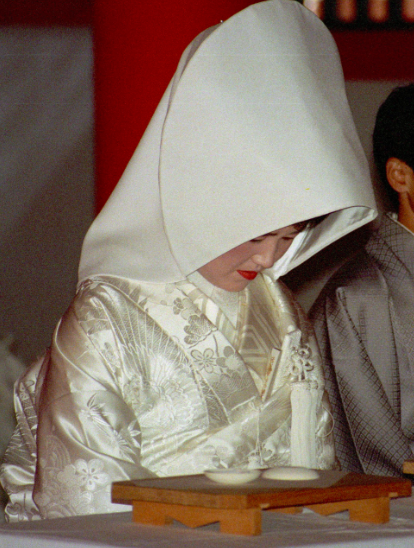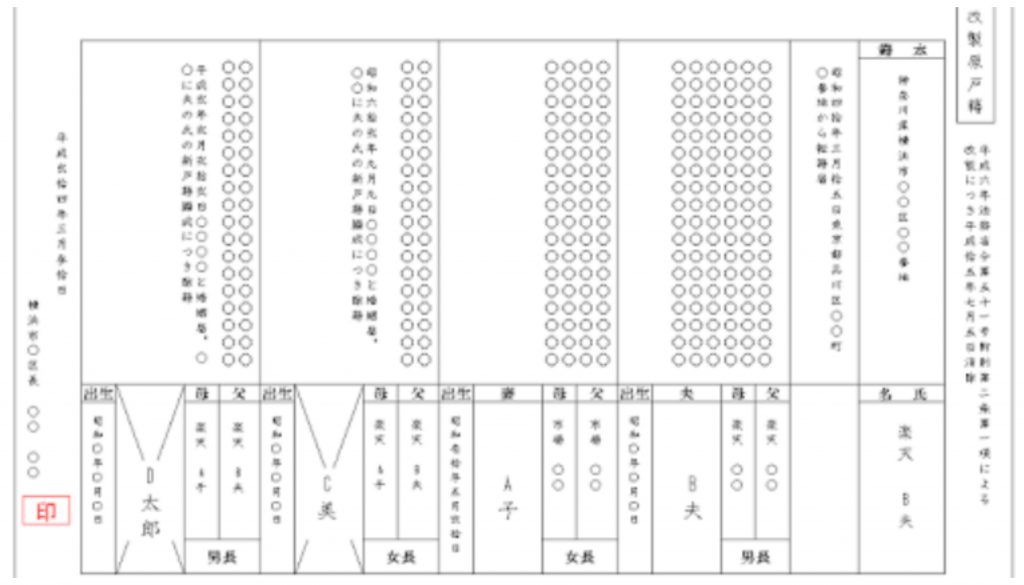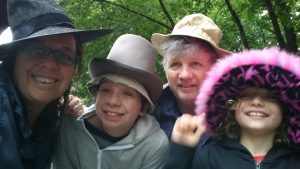
by Tes Silverman | Mar 1, 2016 | 2016, Asia, Culture, Marriage, Uncategorized, World Moms Blog, World Voice
 This Thursday, March 3rd, an event in Japan known as Girls Day, a day of reflection and prayers for the health and happiness of daughters, comes at a time when women’s voices are not being heard.
This Thursday, March 3rd, an event in Japan known as Girls Day, a day of reflection and prayers for the health and happiness of daughters, comes at a time when women’s voices are not being heard.
In the past few months, Japanese women have been at the crossroads of maintaining with what’s been traditionally acceptable or fighting to keep their surnames even after marriage.
A number of Japanese women have taken an age-old law to court, claiming that being unable to keep their surnames is a violation of their rights. One of the women, Kaori Oguni, argues, “By losing your surname-you’re being made light of, you’re not respected…It’s as if part of yourself vanishes”.
What has been at play is that an age-old law stemming from the patriarchal system that has dominated the family dynamic since 1896. Dating back from the 1600’s during the Edo period, whereby the population was ruled by the Tokogawa Shogunate (feudal system), the only people who had last names were those of the Samurai class, until the end of the Shogunate, known as the Meiji Restoration in the late 1800’s. This was created in order to create their own identities, separate from the Samurai class.
The current law states that married couples share the same last name, and while the law doesn’t specify whose name should be kept, most women keep their husband’s last name to prevent pressure and criticism from the public, or worse their families. It is now being challenged by some professional women who believe it unconstitutional to ban women from having a choice of whether to change their surnames once they marry.
Part of the problem is the continued use of a family register system that has been used for decades which lists every member of the family, like a census. Unlike the census, a daughter’s name is crossed off the family register once she marries and is added onto her husband’s family register. What is disturbing is that a woman’s surname is easily assigned from one register to another, without thought of ramifications for her or her future.

The family register is like a census. The “x” denotes when a woman is divorced, and more than 1 “x” means more than 1 divorce. The family register is how families keep track of their families, but if a daughter gets married, he name is crossed off and added onto her husband’s family register.
According to a source from Japan, this law has affected professional women more so than non-working women. The view has been maintained that the government is providing women a safety net by holding on to the idea of keeping their husband’s last name as future reference with regards to parental rights or inheritance issues. By sharing one surname, it is seen as a way of binding one’s family and women become part of that unit, letting go of their own identity.
In addition to married women, divorced women are just as affected by this law. Once a woman is divorced, her name on the family register is indicated by an “x” and any future divorces would indicate additional “x”s. Once a woman is divorced, she has the option of creating her own register or going back to her parents’ register, but along with having an “x” on the register, it would be noted that it was a result of a divorce. While it may be seen as an efficient way of keeping track of the family system, it seems more like devaluing the woman’s importance in a family.
A few people interviewed regarding this issue believe that it is not just about changing one’s last name, it’s more about having the choice to change it for themselves.
Mrs. U, married for fifteen years never had a problem with taking on her husband’s last name. Her husband had an unusual last name and was proud of it, but over the years, she felt that having to explain her surname is inconvenient. It didn’t occur to her how much paperwork was involved in changing her name on all bank accounts, etc. She also didn’t think at the time how it would affect her sense of self, having grown up with the assumption that one day she would change her name. She wishes now she had given it more thought, though she feels she still would have taken her husband’s name. Her children also have pride in their unusual surname and she wants her daughter to have the option of keeping it, if that’s what she chooses.
Mr. A said that when he was married more than 40 years ago, it never once crossed his mind that his wife would not want to take his surname. When his daughter married 15 years ago, he didn’t feel sad when she changed her name. He always knew that would happen so he was okay with it. But now, he says that Japan is changing and women have a stronger sense of identity. He doesn’t feel that a family having different last names weakens the family unit, though he says many of his peers think this. He hopes his grandchildren will be free to choose whether to share a surname with their spouse or not.
Ms. N is divorced. She hates the practice of x-ing through names on the family register and feels it is discriminatory and an invasion of privacy. She thinks this particular case failed in the Supreme Court because the plaintiff approached it from the angle of ‘I’ve built a reputation and professional name for myself using my maiden name. Changing that disadvantages me.’ Ms. N feels this approach was selfish, bound to fail, and that anti-woman powers that be knew this and used this case to strike down the cause. She thinks if it was approached from an equal rights standpoint, the result may perhaps have been different.
For Asuka Someya-Takahashi, who heads a non-profit organization called PILCON, this law has affected her personally and professionally. “I established a non-profit organization before I was married. Upon my marriage and resulting name change, I needed to file new paperwork with the metropolitan city office and legal affairs bureau. In spite of this, work communication often comes addressed to my maiden name. I am constantly unsure if I should be using my maiden name or married name on invoices, applications for subsidies, etc.”, says Someya-Takahashi.
She adds, “I think if the law allowed couples to choose separate surnames, this kind of complexity could be avoided. The love and ties of family do not change simply because a family uses more than one surname. It’s very unfortunate that in today’s world there are still people who speak out against allowing married couples the choice of having separate surnames”.
With regard to her NPO, Someya-Takahashi explains the importance of PILCON. “PILCON is an NPO which expands upon the sexual health education in Japan. We strive to include information on reproduction health and rights (STI’s (sexually transmitted infections, fertility, equal relationships, etc.) that tend to be left out of the public discussion, in an effort to enable youth to make informed decisions”.
It is amazing to see how a patriarchal family system dating back so many decades still has the power to affect women of today, especially professional women who can affect change in their society.
I never thought that I would have an issue giving up my surname, until I got married. I was always known by my maiden name to my friends and family for years and it was my identity. I didn’t realize how strange it would feel to be called by a different name until I had to change my name in legal documents.
While I did have the option of keeping my maiden name if I wanted to, I decided to take my husband’s name as my own. I still consider myself an individual, but also as someone who is part of a family that believes in choosing their own identity. I believe that everyone should have the choice to be identified as the person they wish to be, not one dictated by laws. Here’s hoping that Japanese women continue to question and challenge the laws that restrict them, and create a future that involves freedom to choose their own identity.
This is an original post written for World Moms Blog by Tes Silverman of Pinay Perspective . World Mom Melanie Oda also contributed research to this post.
If you are married, did you keep your maiden name or take your husband’s?

Tes Silverman was born in Manila, Philippines and has been a New Yorker for over 30 years. Moving from the Philippines to New York opened the doors to the possibility of a life of writing and travel. Before starting a family, she traveled to Iceland, Portugal, Belgium, and France, all the while writing about the people she met through her adventures. After starting a family, she became a freelance writer for publications such as Newsday’s Parents & Children and various local newspapers. Fifteen years ago, she created her blog, The Pinay Perspective. PinayPerspective.com is designed to provide women of all ages and nationalities the space to discuss the similarities and differences on how we view life and the world around us. As a result of her blog, she has written for BlogHer.com and has been invited to attend and blog about the Social Good Summit and Mom+Social Good. In addition, she is a World Voice Editor for World Moms Network and was Managing Editor for a local grass roots activism group, ATLI(Action Together Long Island). Currently residing in Virginia Beach, VA with her husband, fourteen year-old Morkie and a three year old Lab Mix, she continues to write stories of women and children who make an impact in their communities and provide them a place to vocalize their passions.
More Posts - Website
Follow Me:





by Meredith (USA) | Sep 1, 2015 | 2015, Advice, Awareness, Being Considerate, Caring, Communication, Family, Happiness, Husband, Kids, Life Balance, Life Lesson, Motherhood, Priorities, Relationships, USA, World Motherhood

It happened very slowly. It started when my children were small and needed so much attention. They consumed most of my day and by the end of those early days, I was completely spent. I could barely hold my eyes open to read a book before bed let alone hold a conversation with another adult.
Then he started traveling for business and would be gone for two or three weeks at a time. It was scary being alone with my two small children, but it also helped me learn that I could do many things on my own. I learned how to manage the house, fix things and take care of my children while my husband was away.
As the kids grew from babies to toddlers and then started elementary school, I volunteered to help with many of their activities: Scouts, church class, school plays, charity events. My days are consumed with getting my kids ready for school, fulfilling my volunteer obligations, helping with and checking homework, running the kids to their different after school activities, cooking dinner and getting them to bed at a decent time. At the end of the day, I still feel completely spent. That is how my life has gone on for the last few years. I thought I was doing a great job with everything… (more…)
Meredith finds it difficult to tell anyone where she is from exactly! She grew up in several states, but mainly Illinois. She has a Bachelor of Science degree in Elementary Education from the University of Illinois at Champaign/Urbana which is also where she met her husband. She taught kindergarten for seven years before she adopted her son from Guatemala and then gave birth to her daughter two years leter. She moved to Lagos, Nigeria with her husband and two children in July 2009 for her husband's work. She and her family moved back to the U.S.this summer(August 2012) and are adjusting to life back in the U.S. You can read more about her life in Lagos and her adjustment to being back on her blog: We Found Happiness.
More Posts

by Kirsten Doyle (Canada) | Aug 4, 2015 | Canada, Family, Happiness, Life
 A little over four years ago, I stood up in a church, surrounded by the warm glow of friends and family, and promised to love one man for the rest of my life. In sickness and health, for richer or poorer, in good times and bad. My husband and I knew, when we got married, that we would last the distance. We had been together for a long time, borne two children together, and endured a lot of hardship. We had survived the deaths of both of our fathers, my postpartum depression which lasted for almost two years, and my son’s autism diagnosis. I had lost a job, and we had been on the brink of financial crisis. A lot of things had happened. Big, stressful, life-changing things.
A little over four years ago, I stood up in a church, surrounded by the warm glow of friends and family, and promised to love one man for the rest of my life. In sickness and health, for richer or poorer, in good times and bad. My husband and I knew, when we got married, that we would last the distance. We had been together for a long time, borne two children together, and endured a lot of hardship. We had survived the deaths of both of our fathers, my postpartum depression which lasted for almost two years, and my son’s autism diagnosis. I had lost a job, and we had been on the brink of financial crisis. A lot of things had happened. Big, stressful, life-changing things.
Fourteen years into our relationship and four years into our marriage, we have recently been wading through something that many people would see as a disaster: the loss of the industrial unit that my husband worked out of for fifteen years, as well as the charity youth recording studio that it housed. We had a little less than a month to move fifteen years’ worth of product, materials, tools and equipment out of the unit, with no place to move it to. We had to turn our home upside down, empty our garage and beg for favours from friends who might have a bit of storage space to spare.
We had to strip the studio bare – the studio that we put thousands of dollars and tons of love and care into – and we had to see it empty of everything but memories.
Through the heat of July, we moved load upon load of stuff. There has been heavy lifting and carrying, rearranging, decluttering and a great deal of stress and anxiety. While all of this has been going on, I have been keeping my fledgling freelance business alive – helping my husband during the day, working through the night and grabbing catnaps on the couch from time to time. For a month, I abandoned my running, ignored my friends and forgot about things I’d said I would do. My two boys spent countless hours working with us, packing boxes, carrying things into the house, helping us find space where we thought there was none.
It has been physically gruelling, mind-blowingly stressful and absolutely fantastic. It is fantastic because we have an opportunity to rebuild our charity youth studio into something bigger and better than it was before. It is fantastic because my husband gets to recreate his business, drawing from its strengths and learning from the challenges it has faced in the past. It is fantastic because we have had offers of help from friends when we’ve most needed it: someone lent us a pickup truck when our van broke down, someone else has taken on the task of putting together a crowdfunding campaign for the youth studio, and many people showed up to do heavy lifting with us.
Most of all, it is fantastic because we – my husband, my sons and myself – have experienced what it truly means to be a family. Where others might have turned against one another, we have come together as one strong, cohesive unit.
It has been an absolute joy for us all to be there for each other, working together and learning from each other’s strengths. Yes, there has been some snapping and irritation, because we are, after all, human. But there has also been a lot of laughter and fun, and most of all, respect.
To say that my kids have been amazing through all of this doesn’t do it justice. My younger son has demonstrated maturity and empathy well beyond his years, as he has tirelessly helped and constantly shown concern for the wellbeing of those around him. My older son – my autism boy for whom change is so challenging – has been immensely brave through the routine changes and the drastic alterations to the space he lives in. I am so proud of them both that I could cry.
We have emerged from the worst of the craziness. The taking apart and moving out is done, and now we can start the exciting process of rebuilding. I can resume a more humane schedule, my exhausted husband can take a break and catch his breath, and my kids can play. And we can all look at each other and smile, overflowing with happiness, because we have each other. My husband and I know that we will always be there for each other, in good times and bad. And that makes us rich in a way that money never could.
Have you and your family had to deal with adversity? How did you and your kids cope with it?
This is an original post to World Moms Blog by Kirsten Doyle of Running for Autism. Photo credit to the author.

Kirsten Doyle was born in South Africa. After completing university, she drifted for a while and finally washed up in Canada in 2000. She is Mom to two boys who have reached the stage of eating everything in sight (but still remaining skinny).
Kirsten was a computer programmer for a while before migrating into I.T. project management. Eventually she tossed in the corporate life entirely in order to be a self-employed writer and editor. She is now living her best life writing about mental health and addictions, and posting videos to two YouTube channels.
When Kirsten is not wrestling with her kids or writing up a storm, she can be seen on Toronto's streets putting many miles onto her running shoes. Every year, she runs a half-marathon to benefit children with autism, inspired by her older son who lives life on the autism spectrum.
Final piece of information: Kirsten is lucky enough to be married to the funniest guy in the world.
Connect with her on Facebook, Twitter and Instagram.
Be sure to check out her YouTube channels at My Gen X Life and Word Salad With Coffee!
More Posts
Follow Me:




by Marie Kléber | Jun 15, 2015 | Babies, Life, Pregnancy, Relationships
 I don’t know how your pregnancy went. I can tell you that mine was far from perfect, far from the dream I once had of what my life as a pregnant woman would be. I had it all planned, but nothing went according to plan. I was not sick but I was overly tired. And what made it all wrong was that something was missing in my marriage: there was a lack of communication and real love.
I don’t know how your pregnancy went. I can tell you that mine was far from perfect, far from the dream I once had of what my life as a pregnant woman would be. I had it all planned, but nothing went according to plan. I was not sick but I was overly tired. And what made it all wrong was that something was missing in my marriage: there was a lack of communication and real love.
Many women say that the first meeting with their baby is the first ultrasound. Ultrasound technology has improved so much over the past decades. You can already see life inside you, before even feeling it. The second ultrasound was the worst for me, the one I went to, alone once again. When I was done, I stepped outside under the rain and cried. I was lost, not knowing whether I had made the right choice, keeping the baby. I was dealing with painful emotions on my own.
Pregnancy can be a fabulous experience. And it can be a terrific time too. It’s something we ought to remember, because if we don’t, it can cause much damage. We can quickly feel guilty for not feeling good. We can quickly feel that we are not good enough.
Society keeps telling us that we should only rejoice and be in the best mood, that carrying a baby in our womb is amazing, that many don’t have this chance, that the baby inside feels everything.
Morning sickness, depression, rising hormone levels, pelvic pain. We can all relate to this, at one stage or another. That does not make us bad mothers. It just reminds us that we are human beings, dealing with many thoughts and ideas, dealing with struggles which often show up again after many years of survival.
By the third ultrasound, my life was all upside down. I had already created a lake with all my tears. I had left my husband and the country I was living in. At the last ultrasound, I decided to ask whether it was a boy or a girl. I thought maybe this would help me to connect with my child, to reconnect.
But there was no miracle. I was still afraid of the life growing inside me. I lived through more downs than ups. I thought about giving my baby away when I was not thinking about taking my own life.
I could say that delivery changed it all, but it wouldn’t be true. I had a beautiful time. One of my best friends was with me. She cried with me, she suffered with me, she enjoyed this special time with me. I think I was on another planet.
Babies have the power to erase all things around them. You listen to their breath. You can watch them sleep for hours. And the world stops turning around. You feel safe for a while. I can say it was love at first sight. I loved this baby boy, as I started loving him the day I spotted the signs on the pregnancy test. But it felt quite unreal. Something was missing. I could not stop thinking about how this baby could love me back.
It lasted for two years. We were together and yet I could not put words on what we were living together. I was afraid of my baby boy. I was afraid of what I could miss with him. I was scared to hold him in my arms, to give him his bath. I could not stop thinking “it’s going to be easier when he’ll start walking, or talking”. I could not stop the flow of negative thinking “not good enough”. He was alive and I was almost dead.
It took me two years to realize that I was alive too.
One day I spotted both of us laughing, in front of the mirror in the living room. Life burst out of the room, out of our bodies, out of our hearts beating together again. I realized that we were both alive, that I was the best mum for him. By taking away everything that I believed in, life gave me a second chance, a chance I was willing to take care of.
How did it go for you? Did you suffer from depression after birth? Or did you enjoy the happiness of motherhood from the beginning?
This is an original post to World Moms Blog by Marie Kleber from France. Photo credit to the author.
Marie is from France and is living near Paris, after spending 6 years in Irlande. She is a single mum of one, sharing her time between work, family life and writing, her passion. She already wrote 6 books in her native langage.
She loves reading, photography, meeting friends and sharing life experiences. She blogs about domestic abuse, parenting and poetry @https://mahshiandmarshmallow.wordpress.com
More Posts - Website

by Karyn Wills | Mar 19, 2015 | 2015, Awareness, Communication, Divorce, Family, Grief, Health, Husband, Identity, Life, Life Lesson, Marriage, Maternal Health, Mental Health, Mental Illness, New Zealand, Priorities, Relationships, Responsibility, Stress, Womanhood, World Motherhood
 I didn’t have a bad marriage.
I didn’t have a bad marriage.
I wasn’t beaten or mistreated.
My ex never had an affair.
Money stressors were manageable.
We rarely argued.
To the outside world we seemed absolutely fine. But we weren’t.
It was, for me, an intensely sad marriage. And for a long time I couldn’t work out why. Here was a perfectly pleasant man who wished me well and who responded to my affection. He worked hard and was what most of us would call a “good guy”. He still is. But my self-esteem was dropping and my mood was becoming a habitual mix of frustration and melancholy.
It was one of those slow drifts downwards, like water eroding rock.
Then, around 10 years ago, he was diagnosed with something call Alexithymia. It’s not a mental disorder but more of a fixed personality trait. It’s common in those formally on the autism spectrum, in those with Post Traumatic Stress Disorders and in some of us with attachment issues from our early childhood.
Basically, anyone with Alexithymia cannot identify the bodily sensations that go along with their emotions. They still have the same sensations but are unable to distinguish between them and label them. They also have a very limited imaginative life, which sounds fine, until you realise predicting outcomes and taking steps to avoid the less desirable ones, are in fact, a product of our imagination.
These two issues give rise to a deep lack of empathy and ability to relate to another human being. Sympathy –the intellectual understanding of the experience of another–can happen but the actual feeling of an emotion, as another has it, in the sense of true empathy, cannot.
For me, this meant I would have to be sobbing in front of my ex before he understood I was sad, and then have to tell him to give me a hug, as the appropriate response. He did not mean to be uncaring. He just never understood subtle body language or had the instinctive responses that most of us have.
There are always three choices in a situation: To alter it; to put up with it; or to leave.
For many years I did my best to see if things could change. I offered to go back to work, so he could get therapy. I suggested counselling, on more than one occasion. None of these offers were ever taken up.
The more I read about Alexithymia, the more I realised… I would never be taken up on any of these. People with Alexithymia see the rest of us as over-emotional and confusing. They cannot see why they would leave their completely logical realms. Their idea of a perfect partner is a kind body in the house with whom there is as little emotional deviation and routines are maintained – this was exactly what our marriage was.
As time went by, I became increasingly distant and detached. At times, I became unpleasant and down right bitchy. Then, around three years ago, someone asked me what made me happy. And I couldn’t tell them. From being someone who was a perpetual optimist, I was by then emotionally dead – aside from experiencing frustration and melancholy. It was a massive wake up call and I knew something had to change.
It did take three years for me to be ready. There is a comfort in familiarity that is enticing. But in the end, my physical body was beginning to suffer, my older boys were finding the emotional disconnect from their father tough going and the other side of the leap to leave seemed less stressful than staying.
I am sure I was by no means the perfect partner either. But I share this here because these are immensely lonely and soul-destroying relationships to be in – and many who are in them either think they are going crazy or that they are the only ones ever to have this experience or some combination of both. But neither are true.
You’re not crazy. You’re not alone. The shell of the outside relationship that the world sees is not the whole story.
I understand.
Have you ever known someone with Alexithymia? Tell us your tale.
This is an original post to World Moms Blog from our long-time contributor and mother to three in New Zealand, Karyn Sparkles Willis.
The image used in this post is attributed to Nathan Jones. It carries a Flickr Creative Commons attribution license.
Karyn is a teacher, writer and solo mother to three sons. She lives in the sunny wine region of Hawke’s Bay, New Zealand in the city of Napier.
More Posts

 This Thursday, March 3rd, an event in Japan known as Girls Day, a day of reflection and prayers for the health and happiness of daughters, comes at a time when women’s voices are not being heard.
This Thursday, March 3rd, an event in Japan known as Girls Day, a day of reflection and prayers for the health and happiness of daughters, comes at a time when women’s voices are not being heard. 

















